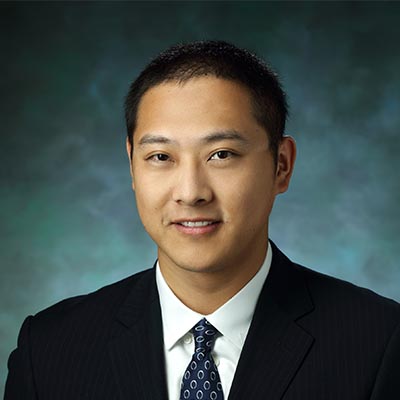
Xiaobo Mao
Xiaobo Mao focuses on protein aggregation and prion-like spreading that drive the pathogenesis in neurodegenerative disorders, including Alzheimer’s disease and Lewy Body Dementia. He pioneered the role of the receptors of prion-like proteins (tau and α-synuclein), including lymphocyte-activation gene 3 (LAG3), amyloid-β precursor-like protein 1 (APLP1), and neurexins, in mediating prion-like proteins cell-to-cell transmission and neuroinflammation. He and his collaborators identified the importance of the C-terminus of α-synuclein and serine129 phosphorylated α-synuclein binding to its receptors (LAG3 and APLP1), and the complex of APLP1-LAG3, exacerbating pathology spread and neurodegeneration. He co-discovered the targets of poly (ADP-ribose) polymerase (PARP) and PAR polymer facilitating prion-like protein spreading and neurodegeneration. He is also determining the role of pathogenic α-synuclein with different aggregation confirmation (strains) driving disease-specific α-synucleinopathies, including the underlying mechanism induced by environmental factors, and the association with clinical features.
Mao received his Ph.D. in Physical Chemistry from the National Center for Nanoscience and Technology, Chinese Academy of Sciences, China. He then came to Johns Hopkins where he completed a postdoc fellowship and Assistant Professor in Neurology, Institute for Cell Engineering.


